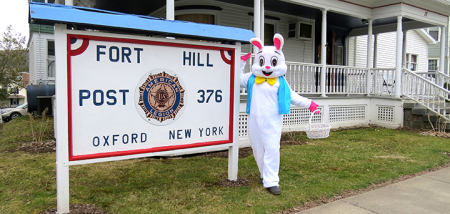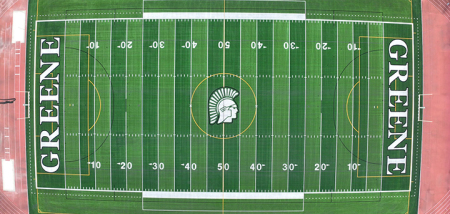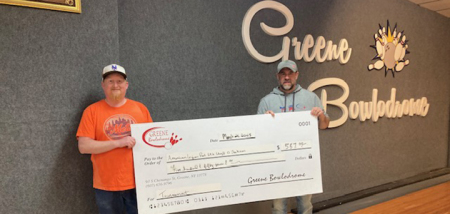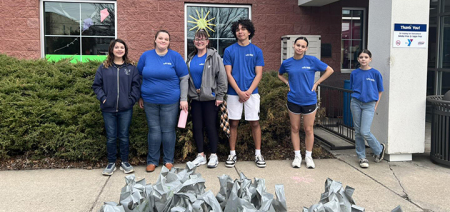Remembering The Departure Of The 114th – 150 Years Ago
Published:
September 6th, 2012
Editor’s Note: James S. Flanagan, retired high school teacher and adjunct English and History professor at Morrisville State College’s Norwich Campus, sent in this article marking the 150th anniversary of the departure of the 114th NY Volunteer Infantry from Norwich on September 6, 1862. “I hope you might see fit to print this article simply because we need to remember the sacrifices they men made for us. If just a handful of reader pause to consider what that departure must have been like and the thoughts and emotions of the thousands of people who crowed the canal that evening, then it will be worth the space you provide for this,” Flanagan wrote in his message to The Evening Sun. We couldn’t agree more.
By James S. Flanagan
Correspondent
On Saturday evening, September 6, 1862, the men who comprised the 114th New York State Volunteer Infantry Regiment departed for service in the Union Army in the Civil War from the approximate location of present day Front Street, South Broad Street and Eaton Avenue on the Chenango Canal in the village of Norwich. President Abraham Lincoln had issued a call for 300,000 more volunteers as the horror of war escalated and casualties mounted. Chenango and Madison Counties responded with over one thousand volunteers ranging in age from 18 to 45.
Harris H. Beecher, MD, of Coventry, the Regimental Surgeon, describes the departure scene in his 1866 history of the 114th New York State Volunteer Infantry:
“… A thousand stalwart men, inspirited with noble purposes and hopes, marched down the Main street of Norwich while the walks and cross streets were filled with weeping relatives and sorrowing friends. Alas! How many a smiling boy stepped from the ranks that evening, and grasped the hands, and spoke a parting word to father and sister, and told mother, while brushing a tear from his eye, that he would soon be home again, who is now, a martyr to human liberty, and sleeps beneath the southern soil. Sad are the parting scenes, hearty are the cheers; joyfully flutter handkerchiefs from fair fingers, proudly the men march in their new uniforms; until they arrive at the banks of the Canal, when each company proceeds aboard its designated boat. Just as the sun is setting behind the hill west of Norwich, the long line of boats commence to move. Slowly they pass under the bridge of South Main street, covered with dark blue forms, while a thousand blue caps are thrown into the air, and a thousand throats send forth a deafening cheer.” (54-55)
As the flotilla of ten canal boats, each with 100 men drifted southward along the canal en route to Binghamton and a trip by rail to Elmira and then southward toward Baltimore, each Chenango village cheered its volunteers with crowds and cannon salutes. At the time of their departure, these men already knew the War was not going well for the Union and the terrible casualty figures from Shiloh and other battles must have weighed heavily upon them. The 114th was engaged in a dozen battles mainly in Louisiana and Virginia including Port Hudson, Louisiana in 1863, and Cedar Creek, Virginia in 1864. Casualty rates were staggering and the 114th suffered the highest losses of any regiment at Cedar Creek.
Of the more than one thousand who departed on September 6, 1862, slightly more than two hundred returned home in June of 1865. The Civil War and preservation of the nation which took upward of 750,000 lives, and which began for so many Chenango and Madison residents here in Norwich 150 years ago today, demanded a heavy price. Remembering those who returned, Dr. Beecher writes: “Our heroes came back, not with garments unstained, not with faces unbronzed. They came back, not Sunday soldiers, but veteran campaigners, accustomed…to the exposure of the bivouac, the fatigue of the march, the poor comfort of hard tack, the storm of battle, and the suffering of sickness and wounds.” (504)
These men did far more than their fair share in the preservation of the nation and our democratic government. Perhaps a moment’s reflection today will remind us of their sacrifice and of the true price of freedom.
Comments









